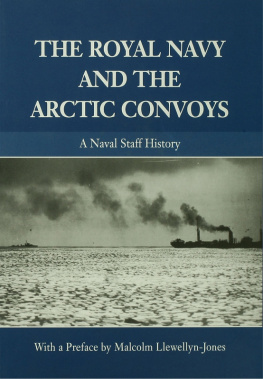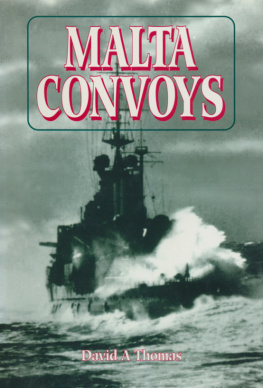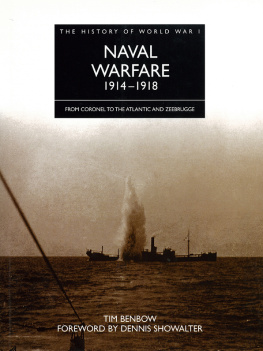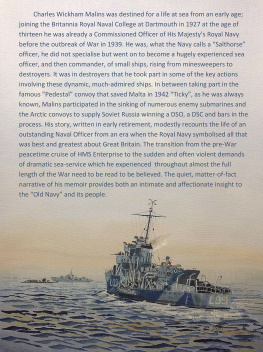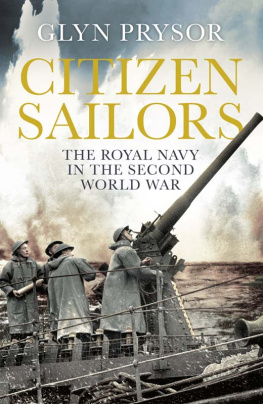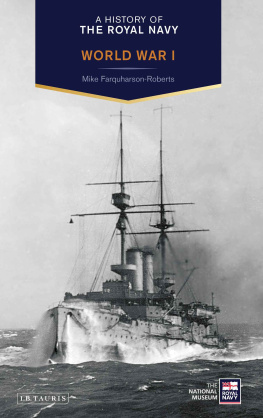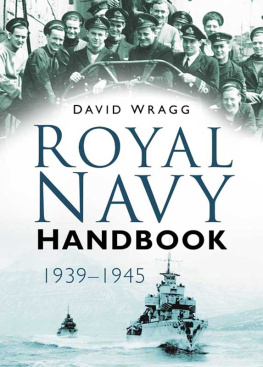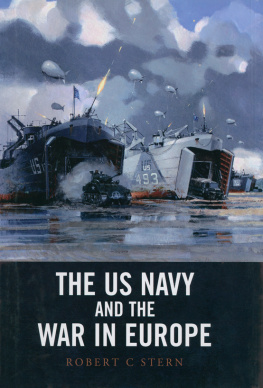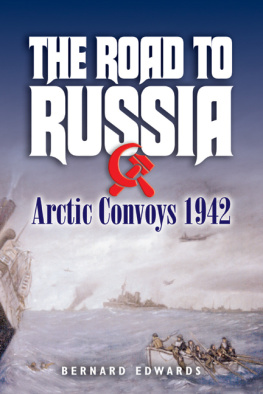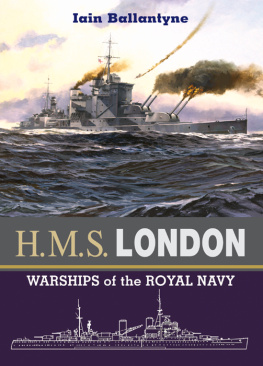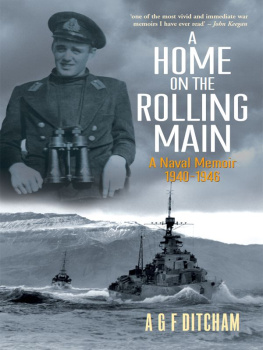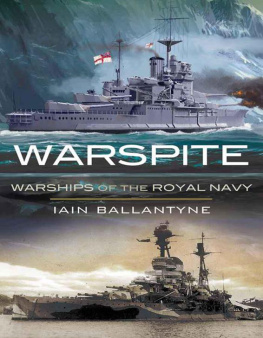Naval Staff Histories
Series Editor: Malcolm Llewellyn-Jones
ISSN: 1471-0757
Naval Staff Histories were produced after the Second World War in order to provide as full an account of the various actions and operations as was possible at the time. In some cases the Histories were based on earlier Battle Summaries written much sooner after the event. and designed to provide more immediate assessments.
The Evacuation from Dunkirk: Operation Dynamo, 26 May4 June 1940
With a preface by W. J. R. Gardner.
Naval Operations of the Campaign in Norway, AprilJune 1940
With a preface by David Brown
The Royal Navy and the Mediterranean, Vol. I: September 1939October 1940
With an introduction by David Brown
The Royal Navy and the Mediterranean, Vol. II: November 1940December 1941
With an introduction by David Brown
German Capital Ships and Raiders in World War II:
Vol I. From Graf Spee to Bismarck, 19391941
Vol. II. From Schamhorst to Tirpitz, 19421944
With an introduction by Eric Grove
The Royal Navy and the Palestine Patrol
Ninian Stewart
The Royal Navy and the Arctic Convoys: A Naval Staff History
With a preface by Malcolm Llewellyn-Jones
The Royal Navy and the Mediterranean Convoys: A Naval Staff History
With a preface by Malcolm Llewellyn-Jones
The Royal Navy and the Arctic
Convoys
A Naval Staff History
With a preface by
Malcolm Llewellyn-Jones
Whitehall History Publishing
in association with
Routledge
First published 2007
by Routledge
2 Park Square, Milton Park, Abingdon OXI4 4KN, UK
Simultaneously published in the USA and Canada
by Routledge
270 Madison Avenue, New York, NY10016
Routledge is an imprint of the Taylor & Francis Group, an informa business
2007 Crown Copyright
Typeset in Times New Roman by
Keystroke, 28 High Street, Tettenhall, Wolverhampton
Printed and bound in Great Britain by
TJI Digital. Padstow. Cornwall
All rights reserved. No part of this book may be reprinted or reproduced or utilised
in any form or by any electronic, mechanical, or other means, now known or
hereafter invented, including photocopying and recording, or in any information
storage or retrieval system, without permission in writing from the publishers.
British Library Cataloguing in Publication Data
A catalogue record for this book is available from the British Library
Library of Congress Cataloging in Publication Data
A catalog record for this book has been applied for
ISBN10 0714652849 (hbk)
ISBN13 9780714652849 (hbk)
ISBN13 9781134730179 (epub)
Published on behalf of the Whitehall History Publishing Consortium.
Applications lo reproduce Crown copyright protected material in this publication
should be submitted in writing to:
HMSO, Copyright Unit, St Clements House, 216 Colegale, Norwich NR3 IBQ.
Fax: 01603 723000.
E-mail: copy right@hmso.gov.uk
Contents
Foreword
Admiral Sir Jonathon Band, KCB, ADC, First Sea Lord and Chief of Naval Staff
Convoys in the Second World War have been largely associated with attacks by U-boats but, as this Naval Staff History of the Arctic Convoys to Russia shows, these operations were sailed in the face of multiple threats from the air and surface, as well as from underwater enemies. By and large, these attacks were successfully countered by the tactical expertise and the determination of the Royal Navy, and the steadfast courage of the Allied merchant marine. Of course, some convoys suffered heavy losses, but lessons were learned and rapidly applied. as the account presented here shows. This History deals with the naval side of the Arctic convoys, which were started very soon after the German invasion of Russia in mid-1941, at a time when Britain was sorely pressed by enemy advances and America was not in the war. The convoys were continued, even though British fortunes remained bleak over the succeeding months and the provision of convoy escorts placed a heavy strain on British resources. These operations amply demonstrated the flexibility of seapower, as many ships were deployed from other commands to support the Home Fleet, and subsequently re-assigned to other missions in theatres often hundreds of miles away. As the new Preface shows, a considerable quantity of war material was transported to Russia during those eventful years. Much of the cargo consisted of unglamorous items such as trucks trucks that moved the Red Army and its supplies, first to blunt the German advances and then to gain its historic victory.
The Western Alliance has. for may years now. enjoyed almost complete control over the Worlds oceans. It is easy to forget how fragile this command can be, even when threatened by weak asymmetric threats. It is therefore easy to take for granted that the oceans can by used for our own purposes: to transport armies and supplies at will. British military campaigns ashore are supplied overwhelmingly by sea. When this Staff History was written, these lessons were in the forefront of most naval officers minds. Sixty years on. it is perhaps time for a gentle reminder that our hegemony may not automatically remain intact and that we may, once more, have to fight supplies through a future battlczone. The History shows how the Royal Navy was able to plan and execute the complex tactical operations required to sec the Arctic convoys through to their destination, without (for the most part) unacceptable losses at least by the standards of their day. These operations also demonstrated that, against a multitude of threats, the age-old strategy of convoy and escort succeeded in simultaneously protecting trade and inflicting heavy loss on the enemy. Even taking into account the great changes in naval technology, convoys remain vital for the survival of the United Kingdom a lesson we forget at our peril! The security of the High Seas and maritime trade remain as important as ever. As for this Staff History, it is now fifty years old, but the account, written with the echoes of the events still ringing in the authors cars, retains an immediacy and candour that the casual reader and academic researcher alike will not find in other secondary accounts.
The Naval Staff History describing the Arctic Convoys, 19411945 was first issued by the Historical Section of the Admiralty as a Confidential study for use within the Royal Navy in 1954.
Although long since declassified, Arctic Convoys, 19411945 is now published for the first time. The history is deliberately reproduced in facsimile with no attempt at revision (although later manuscript amendments, made by the Historical Section, have been appended at the end of this Preface). Only this Preface is new, and is intended to provide some additional context for the convoys and. in particular, to highlight support provided to Russian forces in their struggle against Germany, since the original Staff History was narrowly focussed on the naval aspects of the Arctic Convoys to Russia. In 1957, the Admiralty issued the Staff History covering some of the Mediterranean convoys, whose operational similarities and differences are briefly discussed in this Preface before a few words are added on the continuing relevance of the Arctic Convoys Staff History.


